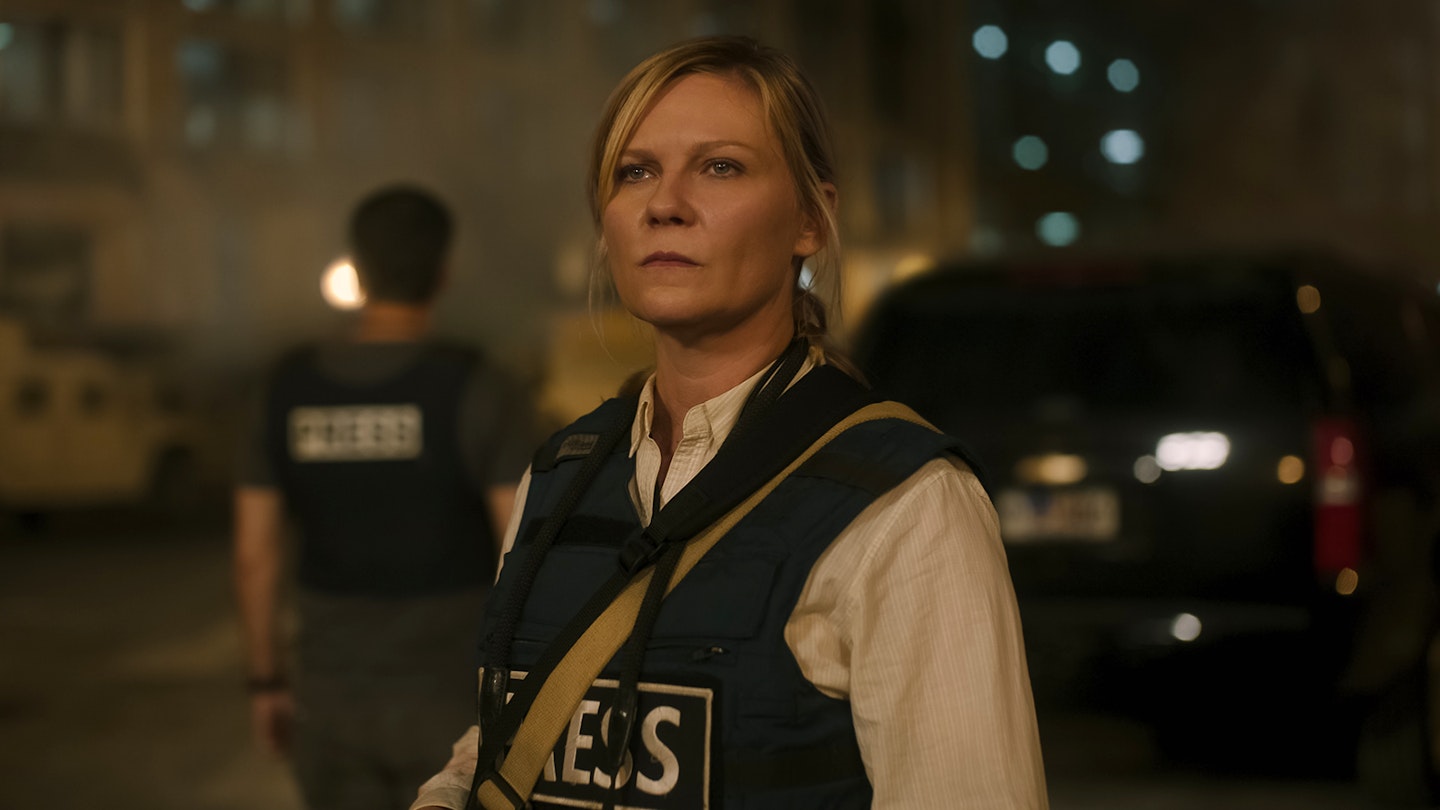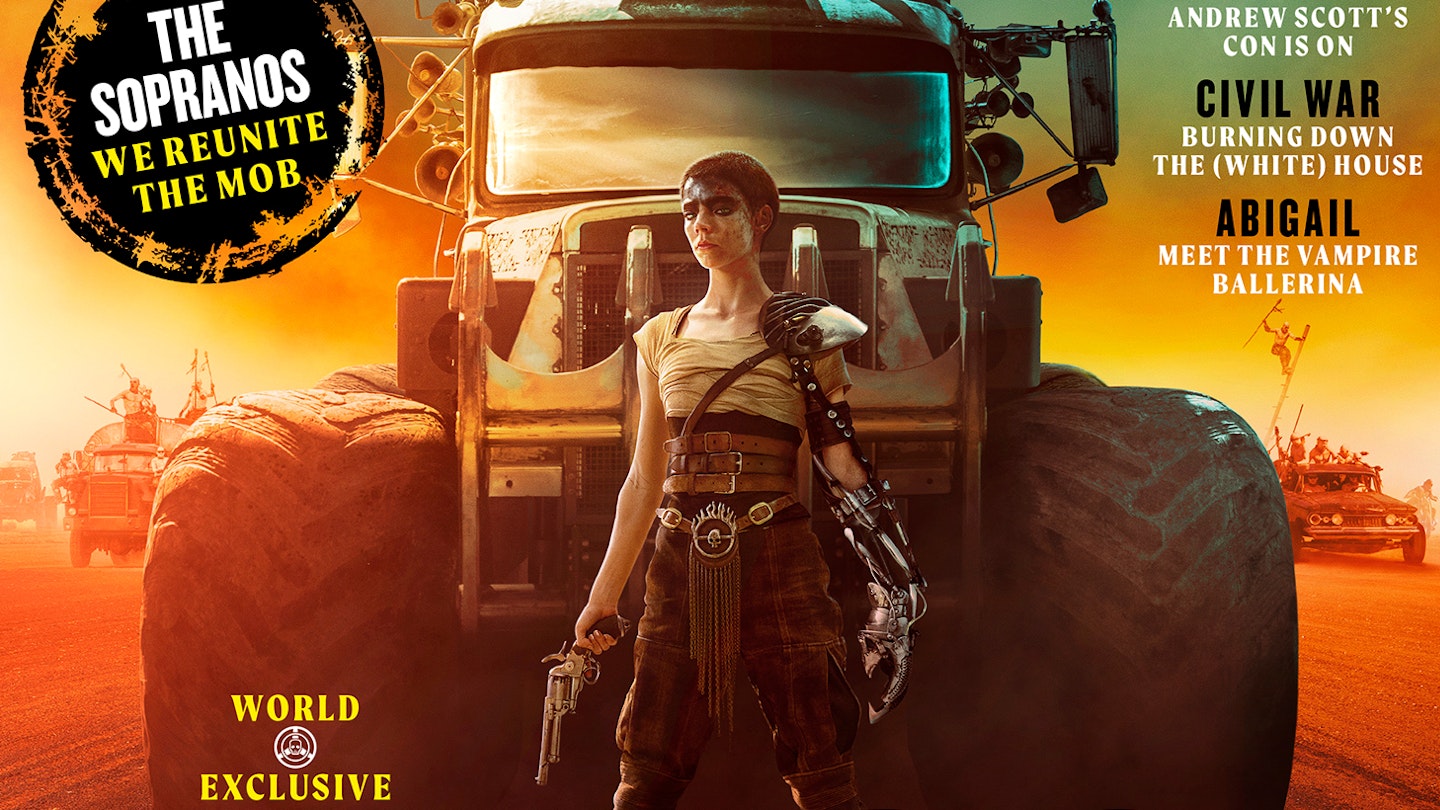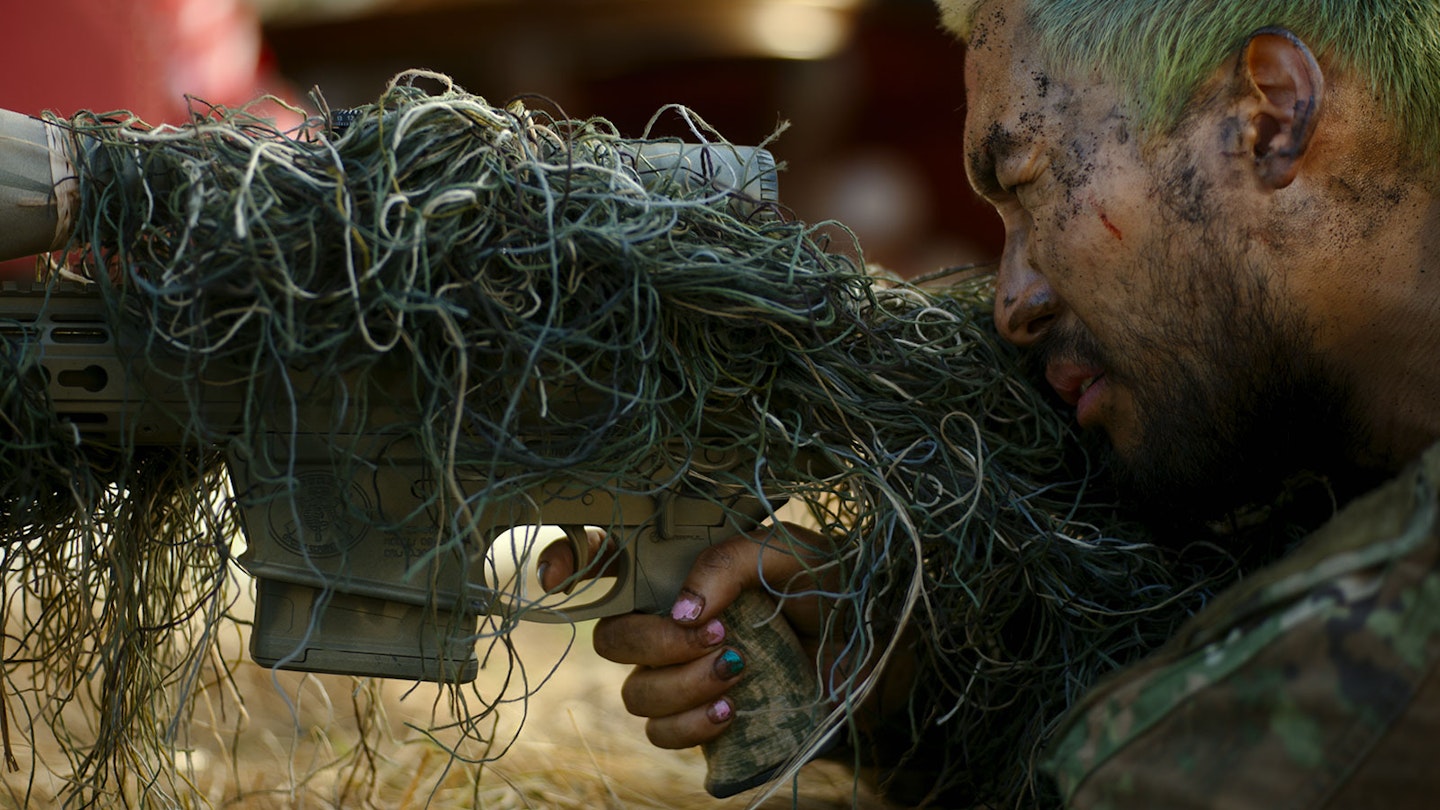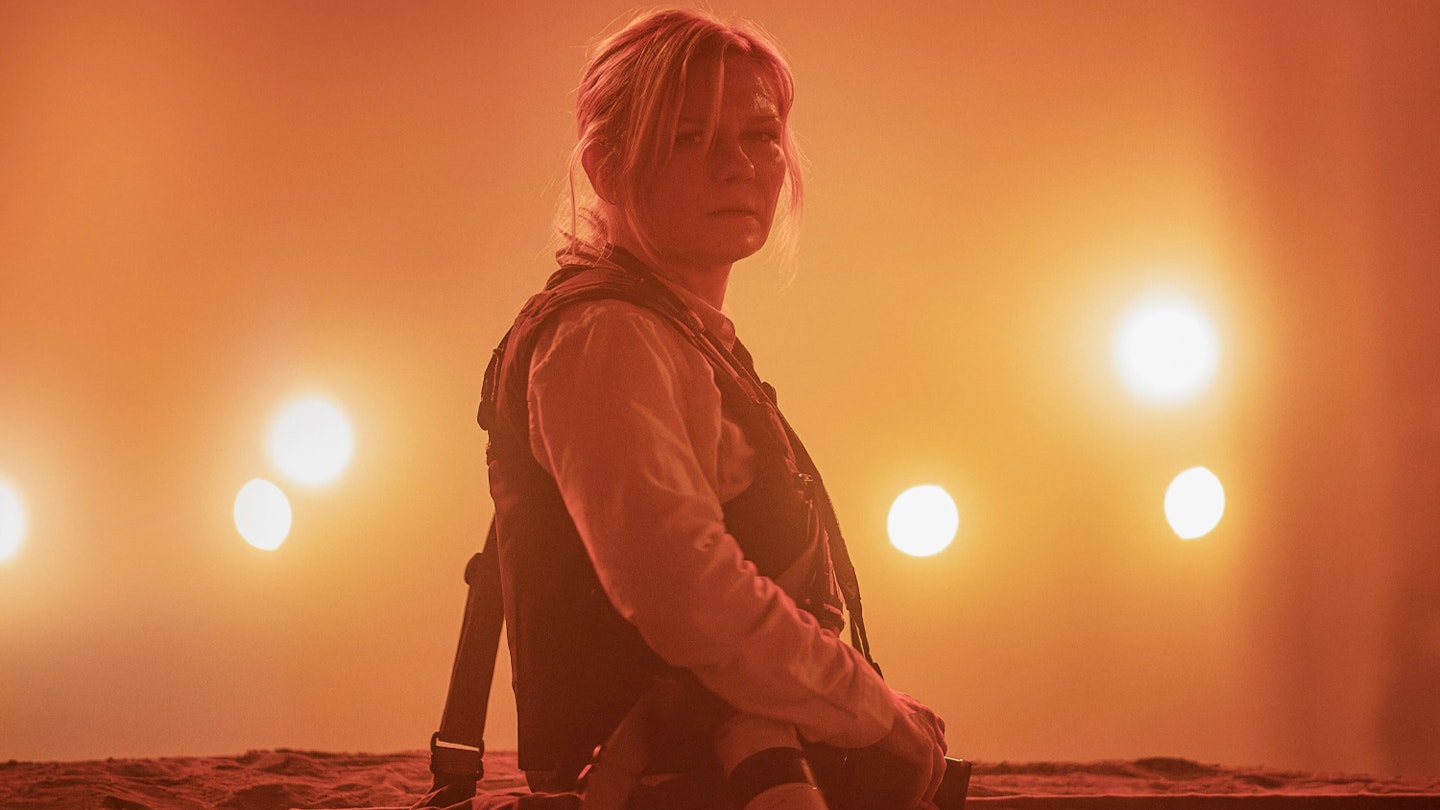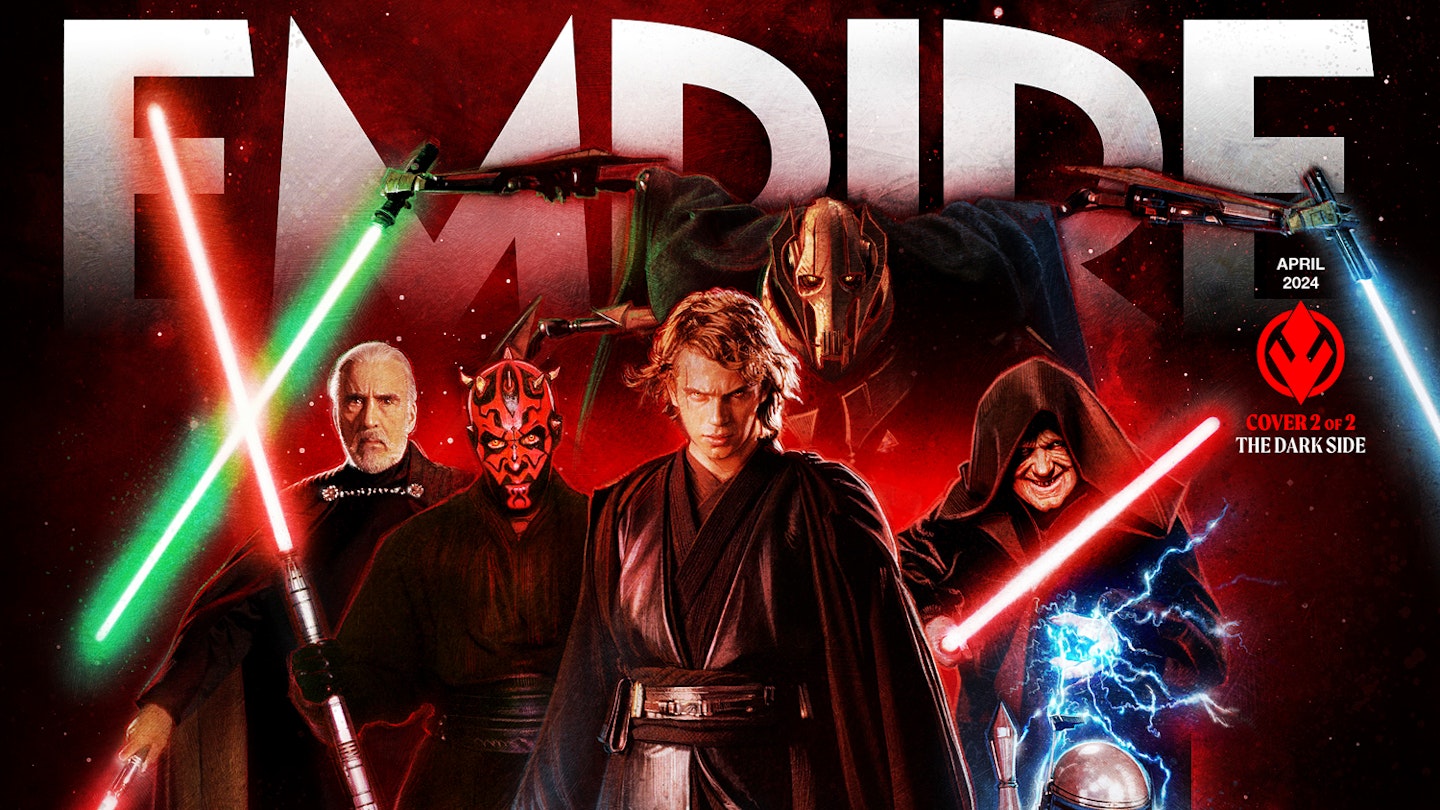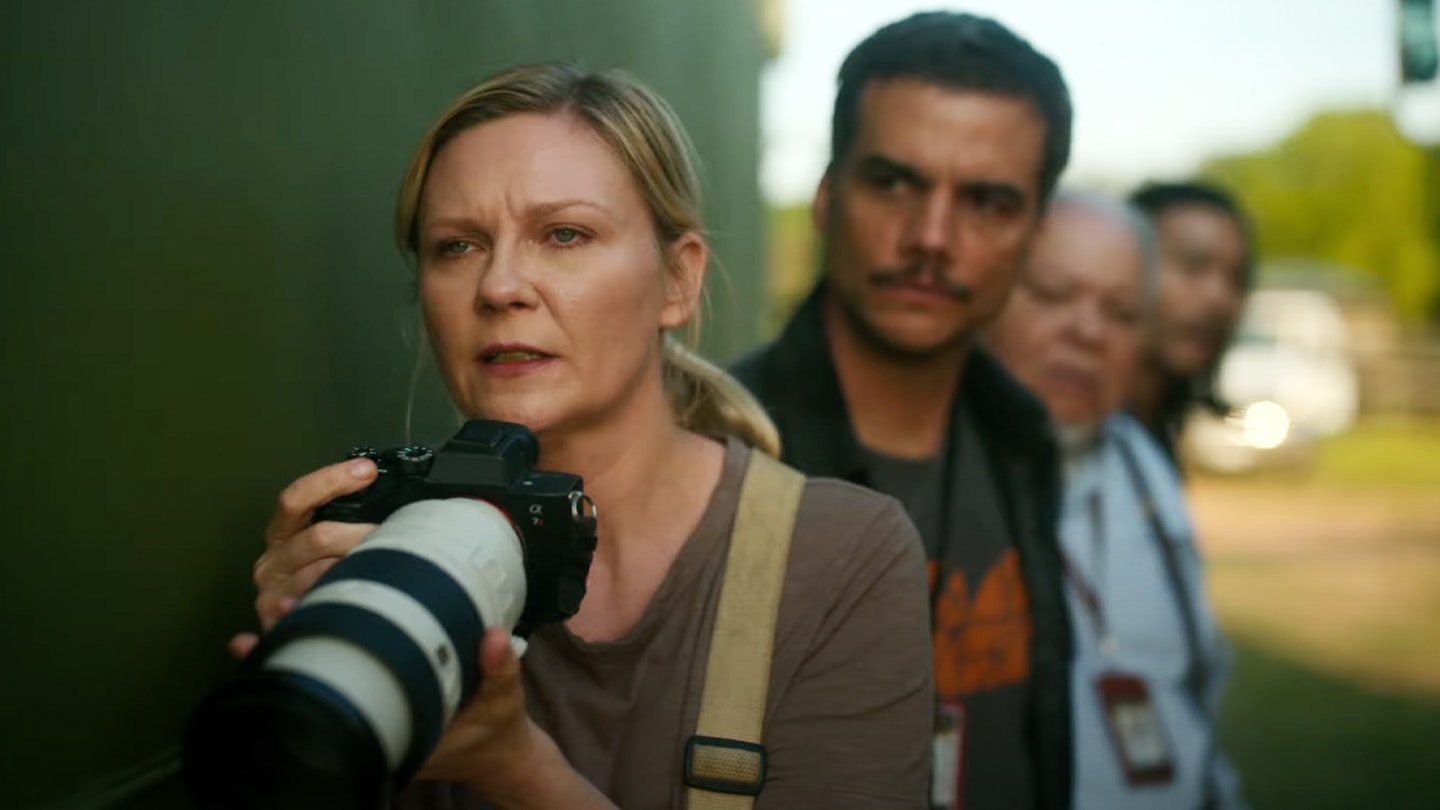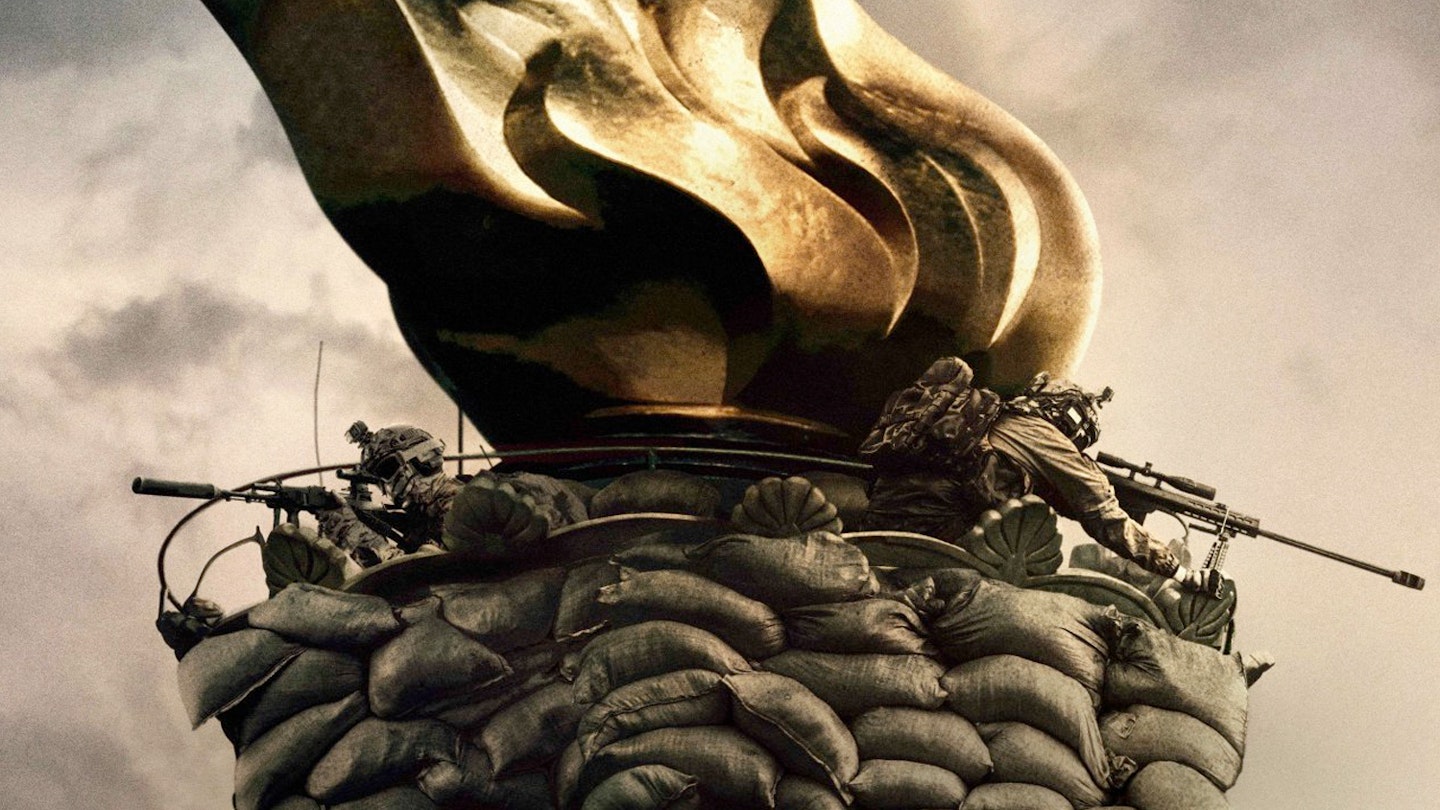In 2014, three years after civil war broke out in Syria, the charity Save The Children released ‘If London Were Syria’: a brutally effective, 93-second commercial that brought the war home to those of us in the UK. It depicted a young girl living in London, whose happy, ordinary life is suddenly disrupted by a hypothetical British civil war. The intended effect of the advert was clear: what if it happened here?

That is the question Alex Garland poses, with brutal lucidity, in Civil War. War is so often an abstract concept to those of us in the West: something you could comfortably wave off as a thing that happens to other people in other places. At a time when real-life hostilities rage around the world, Garland vividly imagines a United States riven by conflict, a big-screen cautionary tale that turns familiar peacetime settings — New York, Washington DC, the car park of a JC Penney — into apocalyptic war zones.
He doesn’t mess about. As the film begins, America’s second civil war appears to be at an advanced stage, battlegrounds flaring from sea to shining sea. There are suicide bombers wrapped in the stars-and-stripes, soldiers in Hawaiian shirts, refugee camps in abandoned stadiums, bodies hanging from bridges. The country is a near-failed state. It feels uncomfortably, distressingly real.
This is a gorgeously made film, full of shock and awe. War is hell — and it’s never looked better.
Unusually, the focus is less on the soldiers on the front lines, or even the politicians calling the shots, than it is the reporters documenting it. Our proxies to this story include over-eager cub photojournalist Jessie (Cailee Spaeny), hardened photographer Lee (Kirsten Dunst), boozy writer Joel (Wagner Moura) and old-hand Sammy (Stephen McKinley Henderson). But while the tone isn’t as coldly detached as that of Garland’s previous films, Ex Machina or Annihilation — blessedly, there is no equivalent scene to Rory Kinnear repeatedly giving birth to himself in Men — this is still a film less about its characters than its ideas.
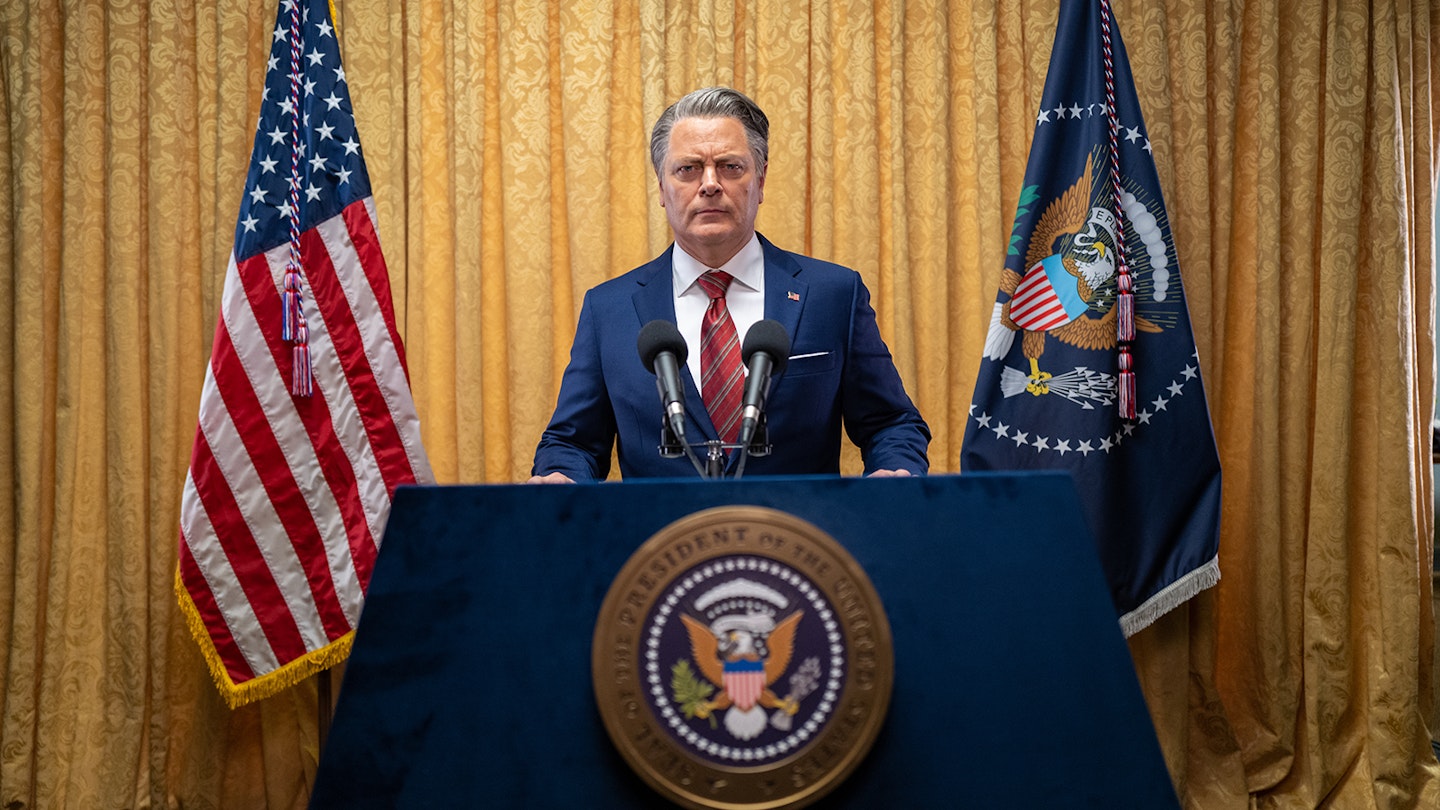
Slowly, we learn tidbits on how the situation deteriorated: that Texas and California, operating under a two-star flag, have joined together as the ‘Western Forces’, while a ‘Florida Alliance’ has been defeated. Such details largely appear, matter-of-factly, in the background, and Garland’s script is deliberately vague; the reasons for the conflict almost immaterial compared to the conflict itself. By uniting Texas and California, two states traditionally from opposite sides of the political coin, Garland seems to want to move past the usual political binaries and look at the bigger picture. Anyone hoping for a direct commentary on the state of things in 2024 might find this a frustrating act of fence-sitting, a centrist dad in cinematic form.
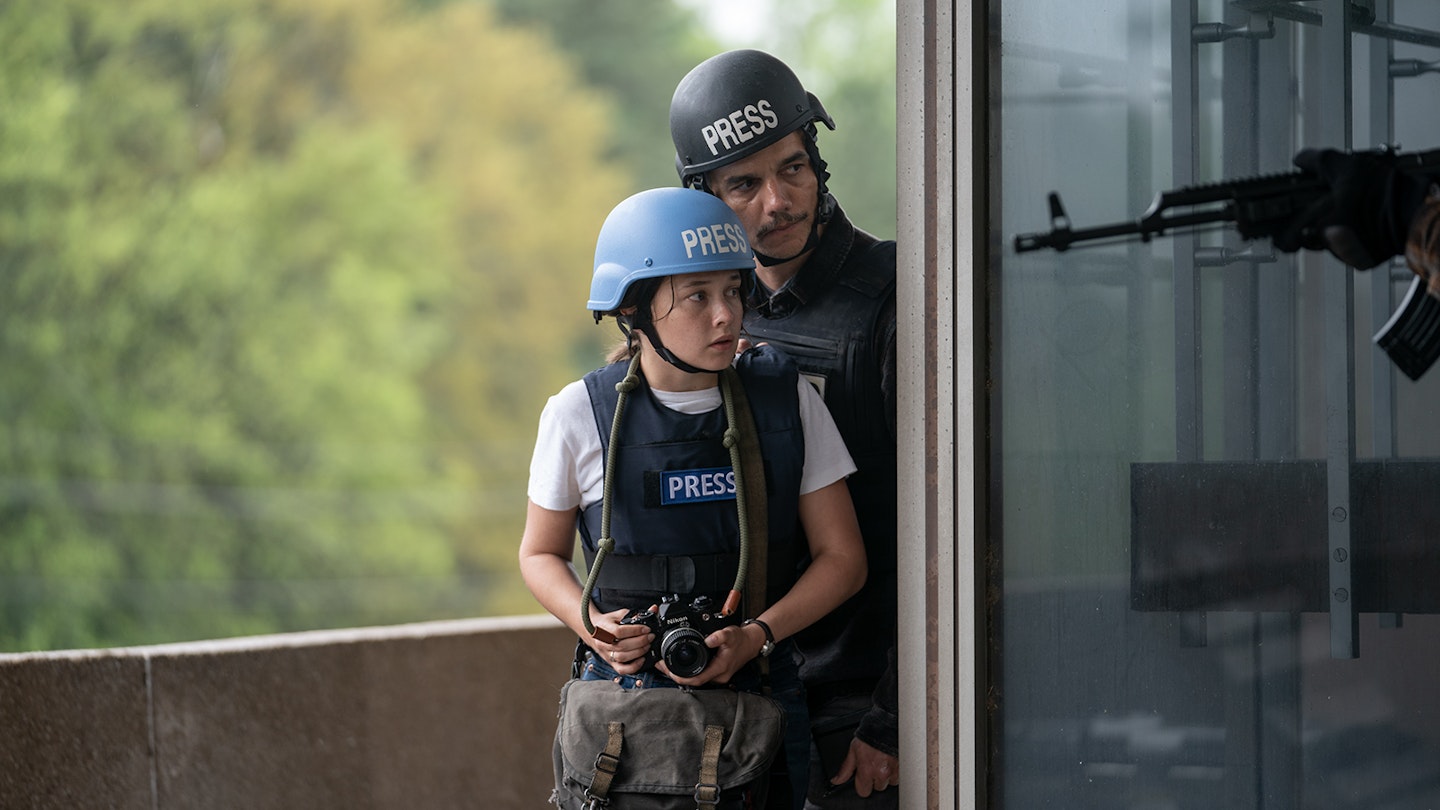
Yet it is not entirely apolitical. The plot hinges on a fascist President played by Nick Offerman, who trades in a very Trump-like, bellicose form of rhetoric (“Some are already calling it the greatest victory in the history of mankind,” he remarks at one point). He appears to have granted himself a third term, and orders airstrikes on his own citizens. Though it avoids direct avatars for current world leaders, the film — released in a US election year with “democracy on the ballot” — does ponder: what happens when democracy fails, and violence fills the vacuum?
Garland is fascinated, too, in how journalists remain objective in their work, how they stay stoic and retain their humanity in the face of inhumanity. Lee seems to have lost hers; Jessie is just discovering hers, their paths crossing and converging. Like Nightcrawler or Peeping Tom, it is interested in the simultaneously destructive and illuminating power of observation. What does it mean to witness history? What does a life behind a lens cost your soul? Garland seems to implicate himself — and us — in the contradictions.
Because, fundamentally, this is a gorgeously made film, full of shock and awe. War is hell — and it’s never looked better. Rob Hardy’s cinematography mixes chilling realism with graceful, haunting beauty, buoyed by some ridiculously well-staged, muscular set-pieces. (The symbolism of a firefight on the steps of the Lincoln Memorial is obvious but irresistible.) It never lets up, always gripping, always pummelling your senses, always ghoulishly compelling. Whatever your response to its political prevarication, this is undeniably confident, intense, sweaty-palmed filmmaking at the highest level.
